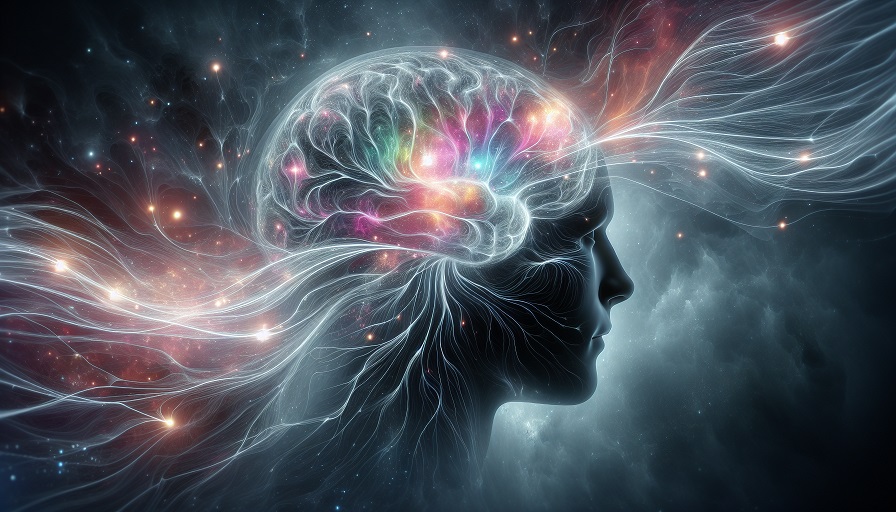
You sit down to get something done. Ten minutes later, you’re on your phone. Five minutes after that, you’re thinking about lunch. Then you’re checking emails, scrolling, organizing your desktop – anything but the task in front of you.
And the narrative kicks in: “I’m too distracted. I just need more discipline.” But what if distraction isn’t a personal failing? What if it’s a signal – a symptom – that your brain is trying to send?
Distraction isn’t laziness. It’s not about weakness or a lack of hustle. More often than not, it’s your brain telling you, “Something is off.”
Contents
The Wrong Diagnosis
We tend to treat distraction like the disease. Productivity culture encourages people to fight it with tighter to-do lists, stricter time blocks, or app-blockers. And while those tools can help, they rarely address why your brain keeps checking out in the first place.
The truth? Distraction is rarely the core problem. It’s a reaction – to stress, fatigue, undernourishment, overstimulation, or boredom. Your brain drifts because it’s trying to cope. Or compensate. Or just survive.
If you only treat the symptom, the real issue gets worse.
The Biological Roots of Distraction
Your ability to focus depends on finely tuned brain chemistry. When those systems go out of balance, attention becomes fragile. Here are some of the most common underlying causes:
- Low dopamine: Dopamine fuels motivation and goal-directed behavior. If levels are low, your brain constantly seeks stimulation elsewhere.
- Elevated cortisol: Chronic stress floods your system with cortisol, impairing memory and shrinking your attention span.
- Fatigue: Mental exhaustion makes it harder to filter distractions or resist impulses – especially digital ones.
- Nutrient depletion: Your brain burns through B vitamins, magnesium, omega-3s, and amino acids to sustain focus. If it’s running on empty, focus breaks down.
Most people don’t need a digital detox. They need brain support.
Distraction as a Coping Mechanism
Distraction also shows up when your brain feels unsafe or unchallenged:
- Overwhelm: Your brain diverts attention away from tasks that feel emotionally heavy or cognitively complex. It’s a defense mechanism.
- Boredom: Low engagement can feel intolerable for an understimulated brain. Cue the urge to scroll, snack, or switch tasks constantly.
- Unclear goals: Without a defined sense of purpose, your brain floats. It’s not distracted – it’s untethered.
If you find yourself endlessly pulled into minor tasks or digital rabbit holes, your brain may not be resisting focus. It may be looking for relief.
How to Treat the Cause, Not the Symptom
Distraction isn’t your enemy. It’s a messenger. So instead of fighting it, get curious. Ask what your brain is lacking or reacting to.
1. Fix Your Fuel First
Start with basics: hydration, protein, healthy fats, and micronutrients. Skipping meals or fueling on sugar and caffeine spikes leads to energy crashes – and with them, scattered thinking.
2. Create Mental White Space
Stop cramming every minute with stimulation. Schedule boredom. Walk without your phone. Let your mind breathe. This reduces dopamine desensitization and improves your brain’s tolerance for calm focus.
3. Limit Task Switching
Your brain loses momentum every time you switch contexts. Use batch working or time blocks for similar tasks, and give your brain time to warm up before expecting deep work.
4. Rethink Your Environment
Distraction is often a design flaw. Notifications, open tabs, cluttered desks – they all tug at your attention. Instead of relying on willpower, reduce the pull of the distractions in the first place.
Where Nootropics Fit In
If you’ve handled the basics and still feel scattered, brain supplementation might be worth considering. Certain nootropics target the neurotransmitters and cognitive systems that regulate attention and mental stamina.
For example:
- Citicoline: Supports the production of acetylcholine and phospholipids, boosting focus and memory retention.
- L-Theanine: Promotes calm clarity, balancing the overstimulation often driving distraction.
- Rhodiola Rosea: Enhances resilience to cognitive fatigue and stress-induced attention loss.
- Bacopa Monnieri: Improves memory while supporting dopamine signaling and reducing internal mental noise.
A well-formulated nootropic like Mind Lab Pro combines these ingredients to support brain systems holistically – not just stimulate one area. The goal isn’t to force your brain to pay attention. It’s to help it function better overall.
You’re Not Broken – You’re Just Overstimulated
We live in a world designed to hijack our focus. It’s not a personal weakness if your brain struggles to sit still. That’s an adaptation – and one you can reverse with the right strategies and support.
When you stop treating distraction as a moral failure and start treating it as a symptom, everything changes. You move from blaming yourself to supporting yourself. From resisting your brain to working with it.
Distraction isn’t the problem. It’s a message. One your brain has been trying to send for a while now. Instead of silencing it with more structure or more shame, start listening. What does your brain need to feel clear, calm, and capable?
Once you stop fighting distraction and start fixing the conditions that cause it, you don’t have to force focus. It shows up on its own.

